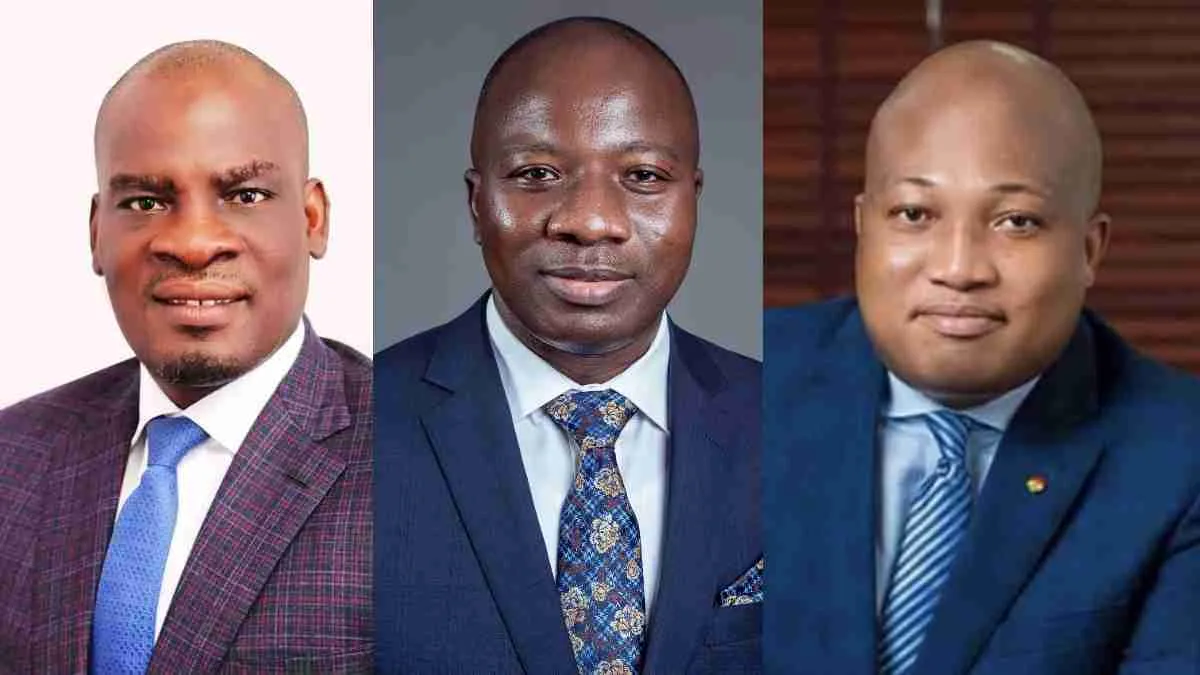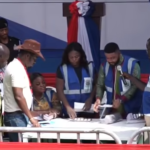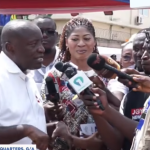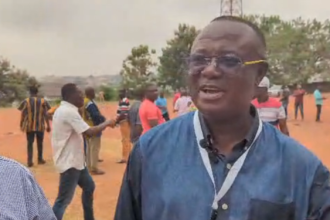The Supreme Court has thrown out an Electronic Transfer Levy (E-Levy) application unanimously after three NDC legislators filed the suit.
A seven-member panel of the apex court presided over by Justice Nene Amegatcher ruled that stopping the new E-Levy would be detrimental to the government.
“Greater hardships will be caused to the state in meeting its developmental obligation to the people, the court held. “The balance of hardship tilt in favour of the respondent”.
It was the view of the court that an injunction on the E-Levy would deprive the government of needed revenue which would be lost for the period that the case will be in court.
However, if the applicants were successful, the Ghana Revenue Authority (GRA) could refund monies collected as E-levy to those who had paid.
The court further charged the GRA to keep an accurate record of payments, so no one is shortchanged.
Despite the application filed on Tuesday, 19 April 2022, the E-Levy was implemented on 1 May 2022, as the government stated that there was no court order mandating a halt in the processes.
In their application, Minority Leader Haruna Iddrisu, Bawku Central MP Mahama Ayariga and North Tongu MP Samuel Okudzeto Ablakwa urged the apex court to restrain the Ghana Revenue Authority (GRA) from implementing the new tax until the substantive case was determined.
The lawyer for the applicants, Edudzie Tamakloe, argued in court on Monday 4 May 2022 that irreparable damage would be caused if the E-Levy was not stopped.
He pointed out that when Parliament passed the E-Levy Bill, there were 136 legislators in the Chamber, less than the required 138 for a quorum.
Additionally, he said legislators who were not in the Chamber were erroneously captured as part of those who were present.
However, the Attorney-General Godfred Yeboah Dame, who represented the respondents, prayed the court to dismiss the suit because the E-Levy had already been implemented as the time to have stopped it had elapsed.
According to the A-G, 266 MPs participated in the processes to approve the revised 1.5% E-levy.
For him, the process was constitutional and legal, and therefore, the applicants had no valid case in court.
Background

They argued that millions of people would suffer irreparable harm if the E-Levy Act was not put on hold, and the court determined that its passage was unconstitutional.
According to them, the GRA would be unable to reimburse the millions who would have paid the E-levy, while the 1992 Constitution, which is the supreme law of the land, would have been undermined.
“That the Plaintiffs having raised an allegation of a breach of the Constitution in the passage of the Electronic Transfer Levy Act, 2022(Act 1075), in order to avoid an incalculable damage, injury and inconvenience not only to the people of Ghana but as well as undermining the Constitution which is the supreme law of the land, the justice of the case demands that the implementation of the Electronic Transfer Levy Act, 2022(Act 1075) is put on hold until the final determination of the instant suit,” the injunction application stated.
In their substantive suit, the three MPs expressed their desire for the apex court to declare the passage of the E-Levy as unconstitutional and, therefore, null and void.
It is their case that Parliament did not have the right quorum to pass the E-Levy as stipulated under Article 104(1) of the 1992 Constitution, which the Supreme Court had recently interpreted.
According to them, at the time the second reading for the passage of the E-Levy was done, there were only 136 MPs present in Parliament instead of the required 138.
Therefore, they wanted the court to declare the whole proceedings, including the second reading, third reading, and voting to pass the E-Levy, as unconstitutional and of no effect.
They had filed an earlier application against the E-Levy on 30 March 2022.
This was after Parliament approved the policy without the participation of NDC MPs who had staged a walkout during the E-levy debate on Tuesday, March 29,
What is the E-levy?
The E-levy is a tax applied on transactions made on electronic or digital platforms. The Minister of Finance announced in Parliament the intention to implement the bill during the presentation of the 2022 Budget.
The tax is one of the measures government plans to use to increase the country’s tax to GDP ratio from 12 5% in 2021 to 20% by 2024.
The government said it would use the revenue for entrepreneurship, youth employment, digital infrastructure and cyber security, and provision of road infrastructure.
The E Levy is charged at the rate of 1 50% on the following transactions:
•Mobile Money transfers done between accounts on the same electronic money issuer
•Mobile Money transfers from an account on one electronic money issuer to a recipient on another electronic money issuer
•Transfers from bank accounts to mobile money accounts
•Transfers from mobile money accounts to bank accounts
•Bank transfers on an instant pay digital platform or application originating from a bank account belonging to an individual subject to a threshold to be determined by the Minister of Finance.
However, not all transfers will be affected by the E Levy.
The Levy does not apply to the following types of transfers:
• A cumulative transfer of One Hundred Ghana Cedis a day made by the same person
•A transfer between accounts owned by the same person
•A transfer for payment of taxes, fees and charges on the Ghana.Gov System or any other Government of Ghana designated payment system
•Specified merchant payments
•Transfers between principal, agent and master agent accounts and
•Electronic clearing of cheques
The Charging Entities are:
- Electronic Money Issuers
- Payment Service Providers
- Banks
- Specialised Deposit-Taking Institutions
- Other Financial Institutions prescribed by Regulations made under the Act.
The levy had divided Parliament, with the Majority pushing for approval while the Minority kicked against it.
There was a split vote of 12 for each side at parliament’s finance committee until the chairman cast the decisive vote favouring the proposal.
Parliament degenerated into fisticuffs at a meeting to approve the levy prompting an adjournment to 18 January 2022.
The Chamber turned chaotic as MPs pushed, shoved and punched each other during the heated exchanges that many observers have since condemned.
This was after the Speaker of Parliament, Alban Bagbin, had left and delegated the First Deputy Speaker, Joe Osei Owusu, to take over proceedings.
The Minority had said it would do all it could to ensure that the bill did not see the light of day, insisting it was not in the best interest of Ghanaians.















